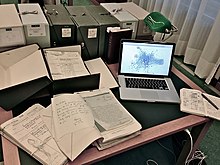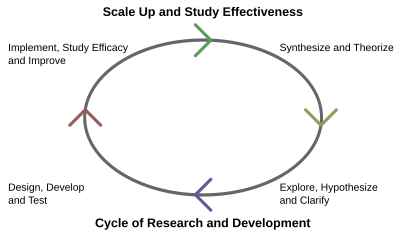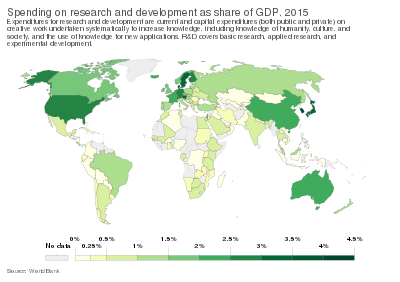
Research and development
General term for activities in connection with corporate or governmental innovation / From Wikipedia, the free encyclopedia
Dear Wikiwand AI, let's keep it short by simply answering these key questions:
Can you list the top facts and stats about Research and development?
Summarize this article for a 10 years old
Research and development (R&D or R+D; known in Europe as research and technological development or RTD),[1] is the set of innovative activities undertaken by corporations or governments in developing new services or products, and improving existing ones.[2][3] Research and development constitutes the first stage of development of a potential new service or the production process.
| Part of a series on |
| Research |
|---|
 |
|
Research strategy |
| Philosophy portal |
| Part of a series on | ||||||
| Science | ||||||
|---|---|---|---|---|---|---|
|
||||||
| This is a subseries on philosophy. In order to explore related topics, please visit navigation. | ||||||


R&D activities differ from institution to institution, with two primary models[3] of an R&D department either staffed by engineers and tasked with directly developing new products, or staffed with industrial scientists and tasked with applied research in scientific or technological fields, which may facilitate future product development. R&D differs from the vast majority of corporate activities in that it is not intended to yield immediate profit, and generally carries greater risk and an uncertain return on investment.[4] However R&D is crucial for acquiring larger shares of the market through the marketisation of new products.[3] R&D&I or R&D&i are also acronyms with the same general meaning of R&D and stand for research, development and innovation.[5][6][7]